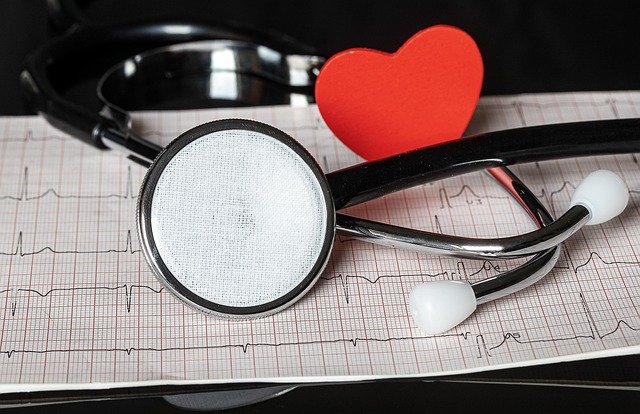Understanding Cardiac Stress Tests: What You Need to Know
A cardiac stress test is a crucial diagnostic tool used to evaluate heart health and detect potential cardiovascular issues. This test, also known as a heart stress test or treadmill stress test, provides valuable insights into how well your heart functions during physical activity. By monitoring your heart's performance under stress, doctors can identify potential problems and develop appropriate treatment plans.

What is a cardiac stress test and why is it performed?
A cardiac stress test is a medical procedure designed to assess how your heart responds to physical exertion. The primary purpose of this test is to diagnose coronary artery disease, evaluate the effectiveness of heart treatments, and determine safe levels of exercise for patients with known heart conditions. Doctors may recommend a cardiac stress test if you’re experiencing symptoms such as chest pain, shortness of breath, or irregular heartbeats, especially during physical activity.
How is a cardiac stress test conducted?
During a cardiac stress test, you’ll typically walk on a treadmill or ride a stationary bicycle while connected to an electrocardiogram (ECG) machine. The test begins with a slow pace and gradually increases in intensity. Throughout the procedure, medical professionals monitor your heart rate, blood pressure, and ECG readings. In some cases, imaging techniques like echocardiography or nuclear imaging may be used to provide more detailed information about your heart’s function.
What are the different types of cardiac stress tests?
There are several types of cardiac stress tests, each designed to provide specific information about heart health:
- Exercise stress test: The most common type, involving walking on a treadmill or cycling.
- Nuclear stress test: Combines exercise with the injection of a radioactive tracer to create detailed images of blood flow to the heart.
- Stress echocardiogram: Uses ultrasound imaging to visualize heart function before and after exercise.
- Pharmacological stress test: For patients unable to exercise, medication is used to simulate the effects of physical exertion on the heart.
Who should undergo a cardiac stress test?
Cardiac stress tests are typically recommended for individuals with risk factors for heart disease or those experiencing symptoms that may indicate a heart problem. Factors that may lead your doctor to suggest a stress test include:
- Chest pain or discomfort
- Shortness of breath
- Irregular heartbeats
- Family history of heart disease
- High blood pressure or cholesterol
- Diabetes
- Smoking
- Obesity
What can a cardiac stress test reveal about your heart health?
A cardiac stress test can provide valuable information about your heart’s condition and overall cardiovascular health. Some key insights that can be gained from this test include:
- The presence of coronary artery disease
- The effectiveness of current heart treatments or medications
- Your heart’s ability to handle physical exertion
- The likelihood of future heart problems
- Safe exercise levels for individuals with known heart conditions
Additionally, stress tests can help identify silent ischemia, a condition where the heart doesn’t receive enough blood flow but doesn’t cause noticeable symptoms.
How to prepare for a cardiac stress test and what to expect?
Preparing for a cardiac stress test is relatively straightforward, but there are some important steps to follow:
- Wear comfortable clothing and supportive shoes suitable for exercise.
- Avoid eating a heavy meal for at least two hours before the test.
- Inform your doctor about any medications you’re taking, as some may need to be temporarily discontinued.
- Avoid caffeine and tobacco for at least 24 hours before the test.
- Bring a list of your current medications and any relevant medical history.
During the test, you’ll be connected to monitoring equipment and asked to exercise until you reach a target heart rate or experience symptoms that require stopping. The entire procedure typically takes about 15 to 30 minutes, with the exercise portion lasting around 7 to 12 minutes.
What are the costs associated with cardiac stress tests?
The cost of a cardiac stress test can vary significantly depending on factors such as location, type of test, and healthcare provider. Here’s a comparison of average costs for different types of cardiac stress tests in the United States:
| Type of Stress Test | Average Cost Range | Typical Provider |
|---|---|---|
| Basic Exercise Stress Test | $200 - $300 | Hospital Outpatient |
| Nuclear Stress Test | $500 - $2,000 | Cardiology Clinic |
| Stress Echocardiogram | $1,000 - $1,500 | Specialized Cardiac Center |
| Pharmacological Stress Test | $1,500 - $2,500 | Hospital Cardiology Department |
Prices, rates, or cost estimates mentioned in this article are based on the latest available information but may change over time. Independent research is advised before making financial decisions.
It’s important to note that these costs can be influenced by factors such as insurance coverage, geographical location, and specific healthcare provider policies. Many insurance plans cover cardiac stress tests when deemed medically necessary, but it’s advisable to check with your insurance provider for specific coverage details and potential out-of-pocket expenses.
In conclusion, cardiac stress tests are invaluable tools for assessing heart health and detecting potential cardiovascular issues. By understanding the purpose, types, and process of these tests, you can be better prepared for this important diagnostic procedure. If you have concerns about your heart health or risk factors for heart disease, consult with your healthcare provider to determine if a cardiac stress test is appropriate for you.
This article is for informational purposes only and should not be considered medical advice. Please consult a qualified healthcare professional for personalized guidance and treatment.
The shared information of this article is up-to-date as of the publishing date. For more up-to-date information, please conduct your own research.




